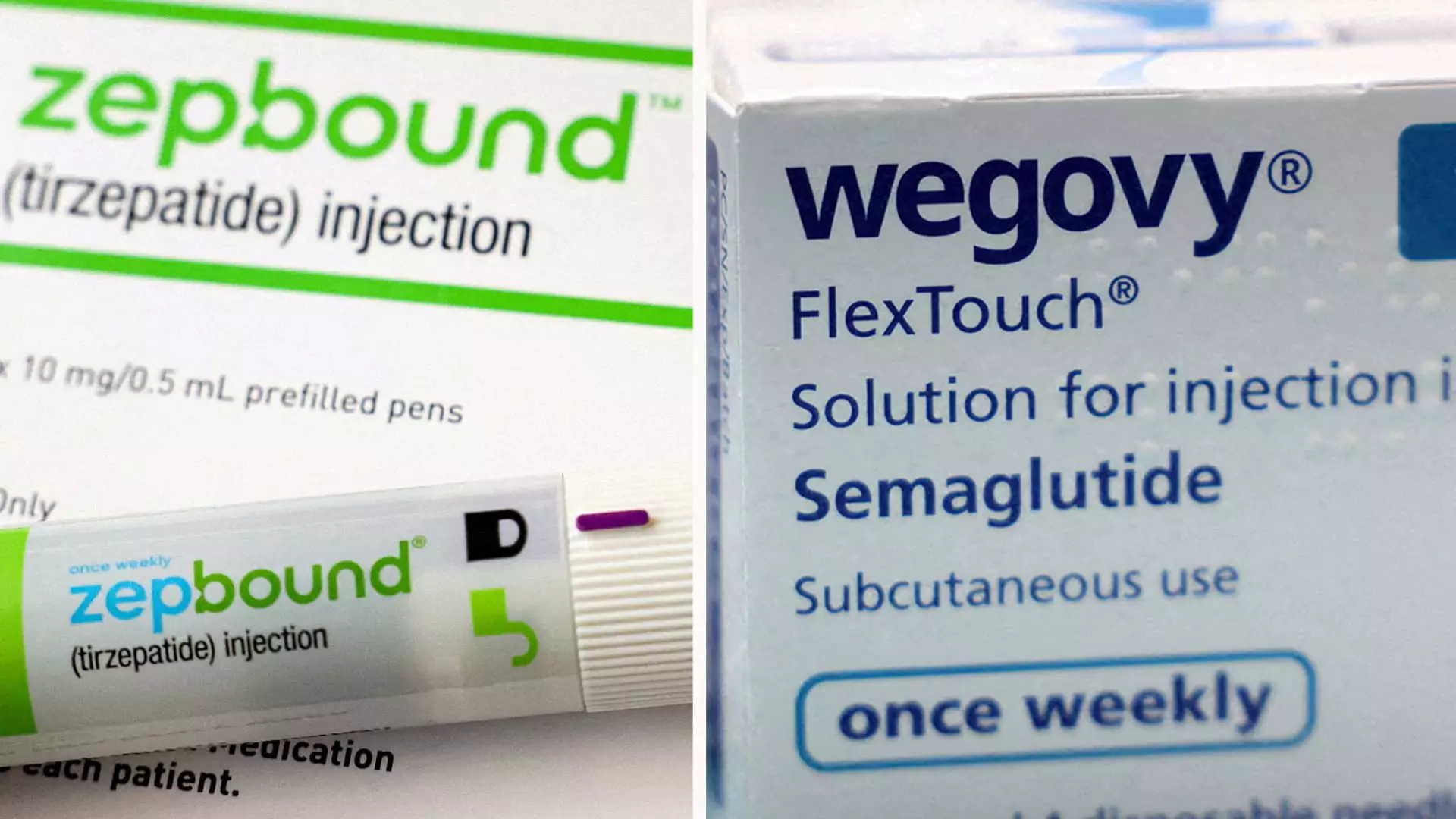The global weight-loss medication market is witnessing a fierce competition, particularly between Eli Lilly’s Zepbound and Novo Nordisk’s Wegovy. Recent findings from Eli Lilly’s head-to-head clinical trial reveal that Zepbound may surpass Wegovy in efficacy, specifically concerning weight reduction among patients with obesity or those who are overweight. This article delves into the significant implications of these findings for the healthcare community, patients, and the burgeoning market for obesity treatment.
Clinical Trial Insights
Eli Lilly conducted a Phase III clinical trial, which involved 751 patients, to assess the effectiveness of Zepbound compared to Wegovy. The results indicate that Zepbound users lost, on average, 20.2% of their body weight — roughly equivalent to 50 pounds — over a 72-week period. In contrast, Wegovy participants experienced a weight loss of around 13.7%, averaging 33 pounds over the same duration. This stark 47% advantage in weight reduction emphasizes Zepbound’s potential as a more effective treatment option for those aiming to lose substantial weight.
Furthermore, the data presented show a significant proportion of individuals on Zepbound (over 31%) achieved at least a 25% reduction in their body weight, compared to approximately 16% of Wegovy users reaching that same benchmark. The importance of such statistics cannot be understated; achieving significant weight loss is crucial for addressing obesity-related health issues and enhancing patients’ overall well-being.
The distinct mechanisms of Zepbound and Wegovy contribute to their differing efficacy levels. Zepbound works by activating two gut hormones, GIP and GLP-1, which help regulate appetite and blood sugar. Wegovy, on the other hand, primarily targets GLP-1 without activating GIP. This divergence in their action points to Zepbound’s potentially more holistic approach in tackling weight loss, suggesting that it might improve metabolic functions more effectively than Wegovy.
The implications of these mechanisms extend beyond mere weight loss; they signal a shift in how healthcare providers might consider prescribing these medications. As the medical community strives for tailored treatment options, understanding these hormonal interactions could be pivotal in defining obesity management strategies.
The competition between Eli Lilly and Novo Nordisk stretches beyond clinical trials; it encompasses market dynamics as well. Both drugs have witnessed a surge in demand that has outstripped supply, prompting both companies to invest heavily in scaling production capabilities. With projections indicating the obesity treatment market could be worth up to $150 billion annually by the early 2030s, the stakes are incredibly high.
Market analysts are optimistic about Zepbound’s potential, with forecasts suggesting that it could generate $27.2 billion in annual sales by 2030. Meanwhile, Wegovy is expected to generate $18.7 billion annually. As these figures indicate, Zepbound’s superior efficacy in weight loss could play a crucial role in establishing it as the premier drug in a competitive marketplace.
However, the road to market leadership is not without its challenges. Access to these medications continues to be an issue for many patients, primarily due to inconsistent insurance coverage for weight-loss therapies in the United States. Both Zepbound and Wegovy come with a hefty price tag, typically around $1,000 per month, which is prohibitive for patients lacking insurance or other financial assistance options.
The overarching societal implications of these medications are significant. As the obesity epidemic continues to grow, access to effective treatment options becomes increasingly vital. Addressing the financial barriers to obtaining Zepbound and Wegovy is essential for ensuring that those who need these therapies can benefit.
The battle between Zepbound and Wegovy encapsulates a broader struggle within the healthcare industry to address obesity effectively. With Zepbound demonstrating potentially superior efficacy in recent clinical trials, Eli Lilly may be on the verge of revolutionizing weight-loss treatments. However, it will be crucial for the industry to focus on improving access and addressing the economic barriers associated with these potentially life-changing medications. The next few years will undoubtedly be pivotal as Zepbound and Wegovy navigate the complexities of the obesity drug market.

